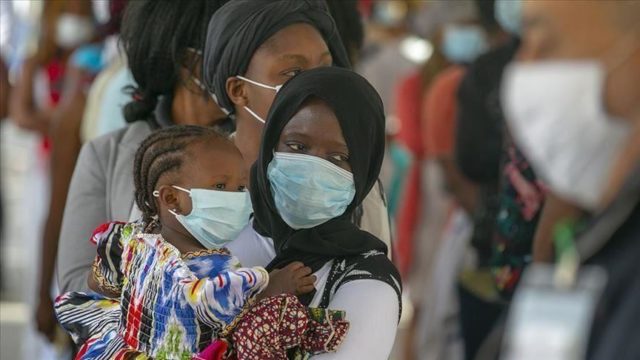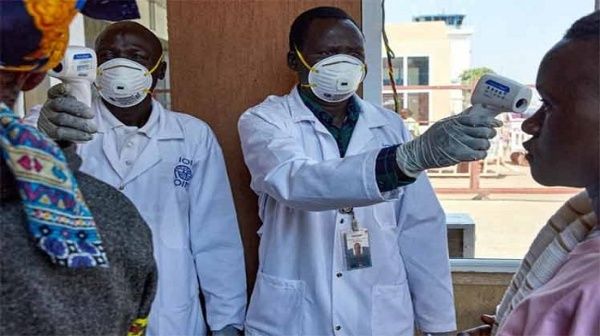
It is a part of the world with crowded cities, where there is little hygiene and where, in certain communities, it is impossible to implement social distancing: families are large and often share a single room.
For months, health experts have been warning that living conditions in poor urban communities in Africa are likely to contribute to the rapid spread of the Coronavirus. But, what is behind the apparent resistance of the African continent to the Pandemic?
“Population density is a key factor. If you cannot implement social distancing, the virus will spread,” says Professor Salim Abdool Karim, chairman of the ministerial advisory committee on COVID-19 of South Africa.
But what if the reverse was also true?
Could these crowded conditions in Africa also offer a possible answer to the mystery that has puzzled many experts for months? What if, and this is putting it quite crudely, poverty turned out to be the best defense against COVID-19? “It is an enigma”. Let’s start with that mystery.
Early in the pandemic, all experts and studies agreed that Africa was in trouble. “I thought we were heading towards a disaster, a total collapse,” explains South African virologist Shabir Madhi.
Even the most optimistic predictions estimated that the country’s hospitals – even the most developed health system on the continent – would be quickly overwhelmed.
Why most epidemics originate in Asia and Africa
But today South Africa appears on track to leave behind its first wave of infections with a death rate from COVID-19 about seven times lower than that of the United Kingdom.
Even if many deaths have not been reported in South Africa, the country has still had an impressive performance, as have many other parts of the continent, where hospital beds remain empty and infection charts have avoided the steep spikes seen elsewhere in the world.
“Most African countries don’t have peaks. I don’t understand why. I’m lost,” admits Professor Karim. And virologist Madhi agrees with him: “It’s an enigma. Completely unbelievable.”
Experts have long argued that Africa’s relatively low infection rates are due to its young population. After all, the average age on the continent is about half that of Europe. Far fewer Africans live to be 80, making them less likely to die after contracting the virus.
“Age is the highest risk factor. Africa’s young population protects (the continent),” said Tim Bromfield, regional director of the Tony Blair Institute for Global Change.
But as the Pandemic drags on and statistical evidence accumulates, analysts seem increasingly reluctant to give demographics all the credit for the continent’s successes.
“Age is not that important a factor,” says Karim, chairman of the South African ministerial advisory committee. Early and strict lockdown actions in South Africa and other parts of the continent have played a crucial role. Also sending clear messages about the importance of the use of masks and the provision of respirators.
In general, other theories related to altitude and warmer temperatures have been neglected. But some experts warn that a vast and poorly connected continent like Africa could be biding its time and that the virus could strike hard in the coming months. “I would not dare to say that Africa has passed its worst moment. I am not sure if one day the epidemic will spread and get out of control,” warns Karim.
Other coronaviruses

But in recent days, scientists at the Vaccine and Infectious Diseases Analysis Unit at Baragwanath Hospital outside Johannesburg have been wondering if the factor they missed – and what might be the answer to what they look like a mystery – it could be inside a freezer in a lab outside Johannesburg.
This freezer, which is kept at -180 ° C with the help of liquid nitrogen, contains metal canisters that store human blood samples obtained five years ago. Or to be more specific, extracts of blood cells – known as peripheral blood mononuclear cells (PBMC) – acquired during a pre-flu vaccine trial in Soweto, an urban area made up of a cluster of settlements southwest of Johannesburg.
The idea is that studying PBMC could give scientists evidence that those people had already contracted a large number of other coronaviruses responsible for many common colds and would enjoy some degree of immunity to COVID-19 as a result.
“It is a hypothesis. Some level of pre-existing cross-protective immunity … could explain why the epidemic did not spread (with the same speed as in other parts of the world),” says Professor Madhi, further adding that several Data collected by scientists in the United States seemed to support the hypothesis.
Colds and flu are, of course, common throughout the world. But South African scientists wondered if, because those viruses spread more effectively in overcrowded neighborhoods, poorer communities might have been more exposed and therefore enjoy a higher degree of immunity to the new coronavirus. The same, of course, could be said for other parts of the world, such as India, which face similar challenges.
“Protection could be much more intense in densely populated areas, in African settings. This could explain why the majority (on the continent) have had mild or asymptomatic infections,” says Madhi.
Disappointment
“I can’t think of anything else that explains the number of completely asymptomatic people we are seeing. The numbers they are unbelievable,” he added, relishing the possibility that entrenched poverty in Africa may finally bring a benefit to the continent.
Nonetheless, skeptics might mention countries like Brazil which, with its famous crowded favelas, has a very high infection rate. Unfortunately, when scientists were preparing to test PBMC samples in the lab, they spotted a problem.
A quality control test revealed that the frozen temperature inside the cryogenic containers had changed over time, perhaps too much for the rigorous standards required for such an important and delicate experiment. “We are very disappointed. We were ready, but unfortunately, this happened,” lamented Dr. Gaurav Kwatra, who was leading the experiment.
There was no one to blame, not even the notorious power outages in South Africa.
The team is now focused on finding new samples to test the theory, but this could take months. Meanwhile, the mystery of the Pandemic in Africa lives on.


